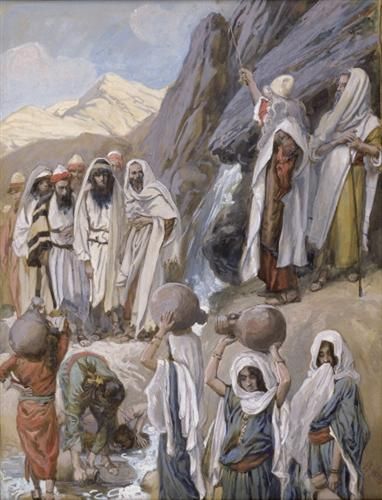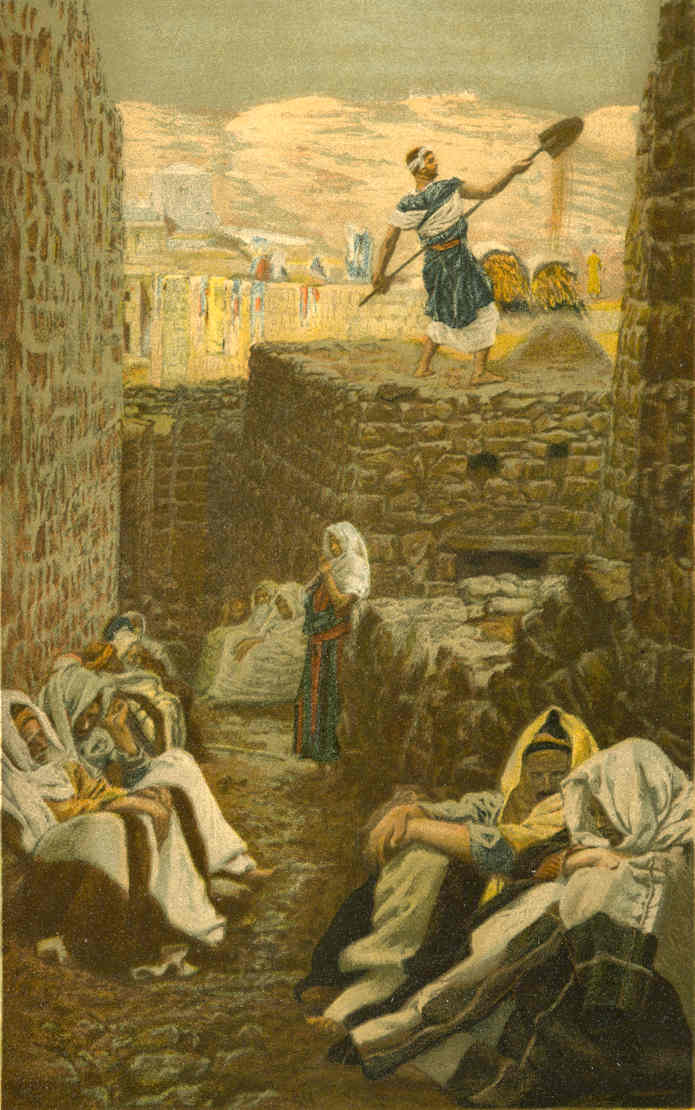 Anomalies Anomalies
What exactly is it about the Biblical 'word' that convinces readers
they are reading about a person, not a message? The Bible talks about the 'Word of the Lord' in a way that would
be peculiar if we thought of the 'Word of the Lord' as a Western
Union telegram sent by God to man. He comes and goes, stays and
leaves, asks and answers: "After these things the word of the
LORD came to Abram in a vision, saying, 'Do not be afraid, Abram.
I am your shield, your exceedingly great reward.'"
(Genesis 15:1).
"Then the LORD appeared again in Shiloh. For the LORD
revealed Himself to Samuel in Shiloh by the word of the LORD."
(1 Samuel 3:21).
"For thy word's sake, and according to thine own
heart, hast thou done all these great things, to make thy servant know them."
(2 Samuel 7:21).
"And Jehoshaphat said, 'The word of the LORD is with him.' So the king
of Israel and Jehoshaphat and the king of Edom went down to him."
(2 Kings 3:12).
"Moreover the word of the LORD came to me, saying,
'Jeremiah, what do you see?' And I said, 'I see a branch of an almond tree.'"
(Jeremiah 1:11).
It's inadvisable to cross Him: "Because he hath despised
the word of the LORD, and hath broken his commandment, that soul shall utterly be cut off;
his iniquity shall be upon him." (Numbers 15:31).
"I have sworn by myself, the word is gone out of my mouth
in righteousness, and shall not return, That unto me every knee
shall bow, every tongue shall swear." (Isaiah 45:23).
"Know now that there shall fall unto the earth nothing of
the word of the LORD, which the LORD spake concerning the house of Ahab: for the LORD hath
done that which he spake by his servant Elijah." (2 Kings 10:10).
One can ask Him a question, and He speaks in return: "And
Jehoshaphat said unto the king of Israel, Enquire,
I pray thee, at the word of the LORD to day." (2 Chronicles 18:4).
He tries His people: "Until the time that his word [dabar] came: the word [imrah]
of the LORD tried him." (Psalm 105:19).
He is the speech and the speaker: "For I have been told by the word of the
LORD, 'You shall not eat bread nor drink water there, nor return by going the way
you came.'" (1 Kings 13:17).
"And also by the hand of the prophet Jehu the son of Hanani
came the word of the LORD against Baasha, and against
his house, even for all the evil that he did in the sight of the LORD, in provoking him to anger with
the work of his hands, in being like the house of Jeroboam; and because he killed him."
(1 Kings 16:7).
"And Elijah the Tishbite, of the inhabitants of Gilead,
said to Ahab, 'As the LORD God of Israel lives, before whom I stand, there shall not be dew nor
rain these years, except at my word.' Then the word of the LORD came to him, saying, 'Get
away from here and turn eastward, and hide by the
Brook Cherith, which flows into the Jordan.'" (1 Kings 17:1-3).
"Then the word of the LORD came to him, saying,
'Arise, go to Zarephath, which belongs to Sidon, and dwell there. See, I have commanded a
widow there to provide for you.'" (1 Kings 17:8-9).

Life-Giver
The word gives life: "This is my comfort in my affliction: for thy
word [imrah, LXX logos] hath quickened me. [το λογιον σου
εζησεν με]" (Psalm 119:50). It
was not a new discovery of the New Testament era that "In him was life"
(John 1:4).

| 

